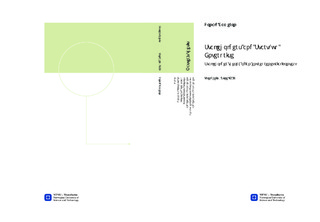Stakeholders and Start-up Enterprise: Stakeholder theory of an entrepreneurial context
Abstract
This paper sources focused interviews from multiple case study companies in conjunction with synthesised theoretical considerations to explore the integration of entrepreneurial stakeholders in start-up enterprise. A resource based-framework for early-phase entrepreneurial stakeholders is grounded with existing stakeholder theory. It is applicable to an entrepreneurial context that is grounded with entrepreneurship literature. Both the early-phase entrepreneurial stakeholder framework and the entrepreneurial context are rooted in value creation.Findings suggest that there is limited applicability of a resource-based stakeholder framework for entrepreneurship. From the perspective of start-up enterprise requirements, the resource based-framework is coherent largely because such value creation efforts are constrained by limited resources. External to the value creation networks of start-up enterprise, the resource-based framework is valid where exchanges are dominated by relative bargaining relationships of stakeholders with respect to economic substitution or switching costs and in the absence of personal relationships. However, inside the entrepreneurial context and where value creation is reducible to personal interactions, theoretical tensions are manifest when considering intangible personal relationships in terms of a resource exchange. The implication is that trust, loyalty, or the evolving dynamics of a contextual stakeholder network might be reliably modelled through quantification. The practical implications for entrepreneurs are to pay attention to personal characteristics of stakeholders.Further research may be lent to testing the propositions of an entrepreneurial context or of exploring how entrepreneurial behaviours, relationships, and activities might account for stakeholder interactions with relation to stakeholder theory.
